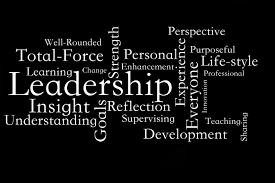The Pros and Cons of International Baccalaureate
 Schooladvisor Team
Schooladvisor TeamWith the world beginning to understand the importance of inquiry-based education, many parents are looking to enrol their children to International Baccalaureate curriculum, because it prepares students to be critical thinkers while teaching them valuable life lessons.
But you, as a student, should not rush into the decision of enrolling into IB, because choosing a curriculum has a lot of implications, from coping with the workload to enrolling into a university. And like any other curriculums, IB is not all things good either.

So, if you are considering this curriculum, the best way would be to make a list of pros and cons. However, to save you the handwork, team SchoolAdvisor has already prepared the list for you:
The Good
All-round education
This is probably the biggest reason for parents choosing IB for their children. It allows students to think out of the box, ask questions, research and find their own answers. It is not structured coursework instead there is a lot of flexibility to learn.
The number of subjects offered is also wide, which some people believe to be a bad thing because it tends to make students jack of all trades and master of none. But the world is shifting to become a place where this is exactly what will be valued in the future – wide area of knowledge instead of just one area of expertise.
It is also great for students who are yet to decide on their career path, as IB will let them have an in-depth understanding of varied subjects, which can help them understand the career path they would like to pursue.
IB is considered a more human curriculum too, which means that their learning approach aims to create more socially aware individuals who are compassionate, empathetic and can contribute positively to the community.

Global Acceptability
IB is recognised and accepted by a huge number of renowned universities worldwide. Regardless of the country you receive your IB certification from, it will mean the same thing to every IB accepting universities worldwide. Meaning, with an IB certification, you would be at a position to apply globally to different courses and universities.
It also prepares students for tertiary education so much so that IB students say that after completing their IBDP, the first year at their university seemed so much easier.
The Bad
Workload!
According to IB teachers, it is not a course for students who like to take things easy or procrastinate, because every single moment wasted can pile up the workload.
The teachers will guide students but will not show them the way as in spoon feed them. Pursuing IB requires in-depth research work, with a lot of assignments and it can get overwhelming for some students. Just go to twitter and look up #IBproblems, you will know for yourself the reaction of students of IB.

Extra Subjects
For students who are sure of their career direction, A levels will be more suited than IB since the former lets the student take up only the subjects that are crucial for their chosen career direction. Whereas, IB requires students to take up a wide range of subjects, even if they do not require them.
This also adds to their workload because instead of focusing on their strong subjects, the time gets divided into scoring for the weak subjects too. While some believe this is a good thing because it helps students grow their knowledge base, it is a disadvantage for students who have already decided on the direction of their tertiary education.

The last thing you want is to go through curriculum regret. Thus, instead of going with the flow, pause and think first, about your future goals as well as the way you are used to working and then find a curriculum that will help you reach your optimum potential. Because everyone is different with different ways of learning and hence will thrive in different environments.

